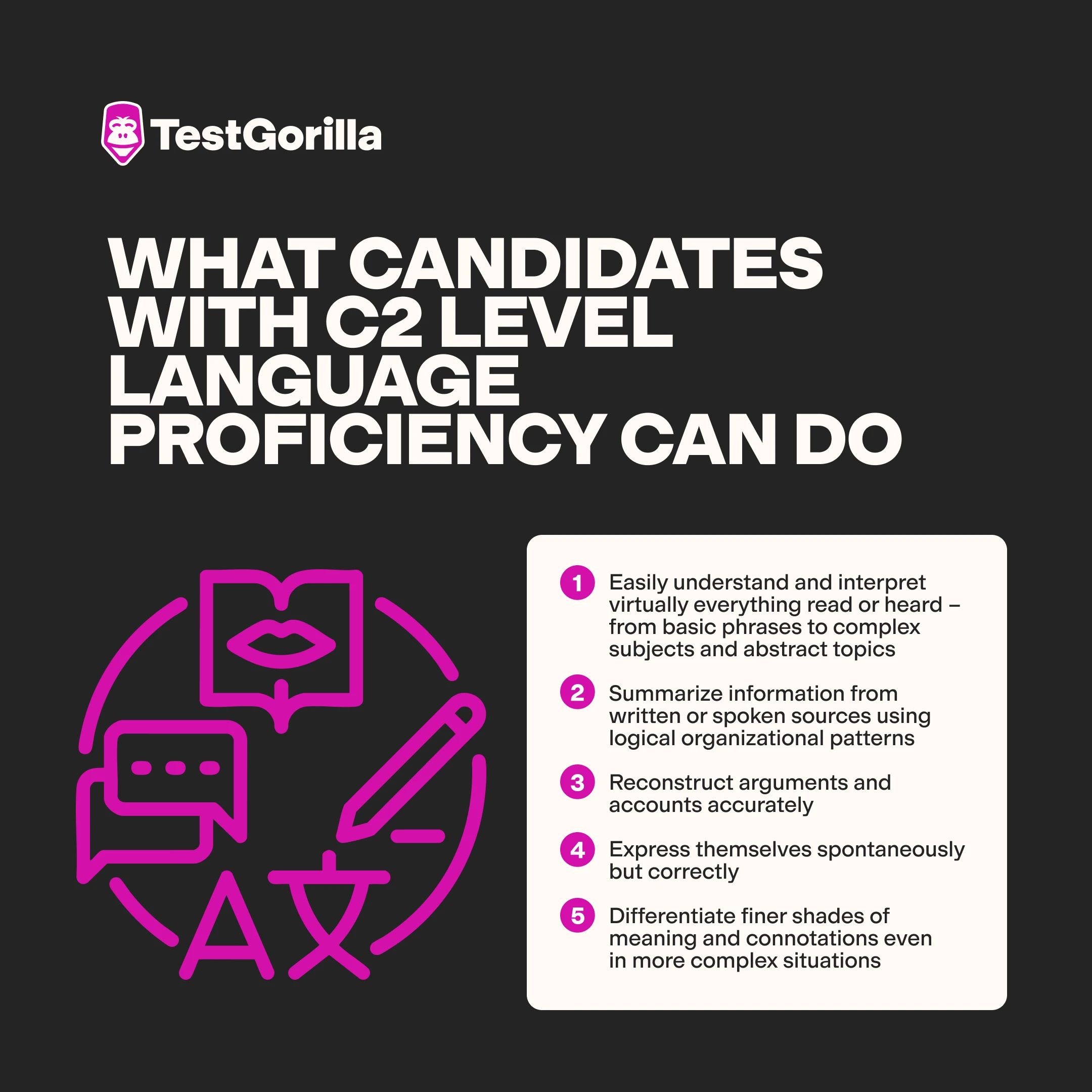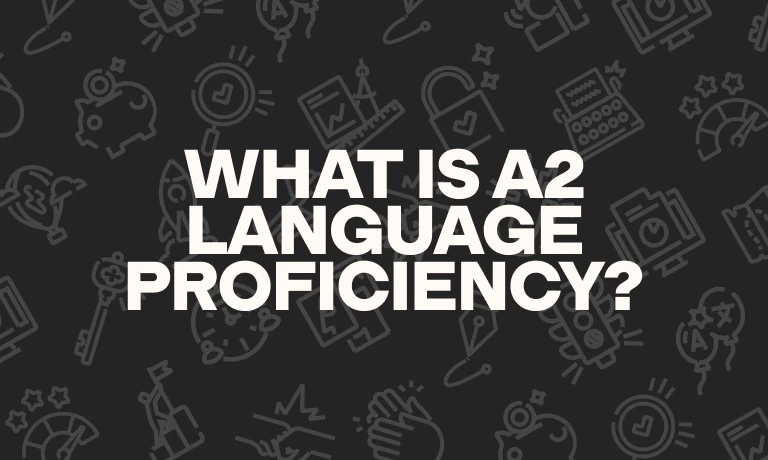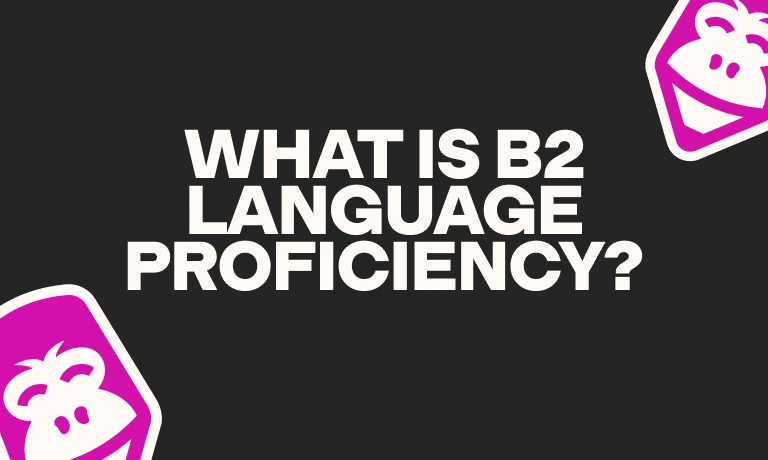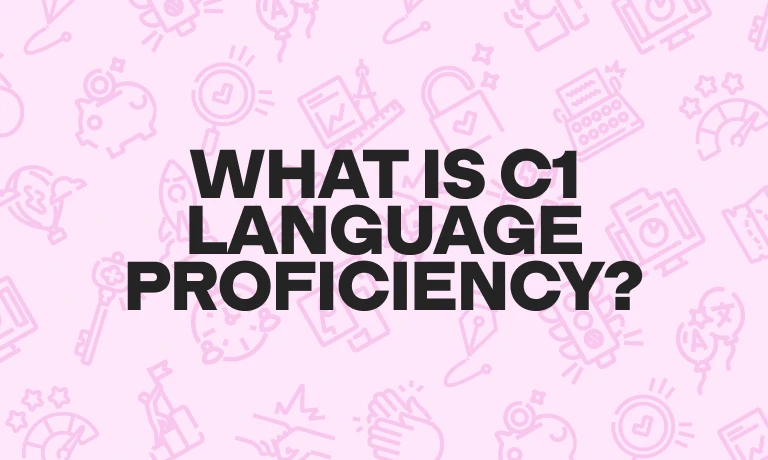What is C2 language proficiency? A must-have skill for high-stakes roles
Hiring candidates with C2 language proficiency is non-negotiable for any business that requires extensive communicating, collaborating, presenting, negotiating, or reporting. Even the best skills fall flat if employees can’t understand each other or engage with customers.
Yet, some employers overlook language proficiency in the early stages of hiring – for instance, by placing all their energy on measuring technical aptitude. Then they end up interviewing – or worse, hiring – candidates who have only basic or intermediate language skills for roles that demand mastery.
Luckily, you can easily avoid this. Below, we explain what C2 language proficiency is, why it's needed, and how to quickly but accurately filter for candidates with top-tier fluency.
Table of contents
- What is C2 level language proficiency?
- What types of jobs, sectors, and companies need C2 proficiency?
- The impact of C2 language proficiency in high-stakes roles
- Assessing C2 language proficiency in candidates
- Integrating C2 language assessments into the hiring process
- Hire a candidate with top-notch language skills in your team
What is C2 level language proficiency?
C2 is the highest level of language proficiency on the Common European Framework of Reference for Languages (CEFR) – a standardized international system for measuring someone’s ability in a language. Think of C2 as the gold standard for fluency, where one can effortlessly speak, write, read, and understand the language as well as native speakers.
Lower levels of the CEFR include A1 (beginner), A2 (elementary), B1 (intermediate), B2 (upper intermediate), and C1 (advanced).
Someone at the C2 language level can tackle everything from casual discussions to technical conversations without any noticeable struggles – like evidently searching for expressions while communicating (also known as obvious searching).
At the C2 level, candidates can:
Easily understand and interpret virtually everything read or heard – from basic phrases to complex subjects and abstract topics
Summarize information from written or spoken sources using logical organizational patterns
Reconstruct arguments and accounts accurately
Express themselves spontaneously but correctly
Differentiate finer shades of meaning and connotations even in more complex situations
What types of jobs, sectors, and companies need C2 proficiency?
C2 language proficiency is a must-have for any job that requires precise and complex communication with little to no room for error.
Think of roles where one must negotiate deals, write detailed reports, lead coherent presentations, conduct research, and communicate at senior levels in a second language. It's also essential in sectors where misunderstandings caused by language barriers could have major consequences and even put you in legal hot water – for instance, healthcare, law, or banking.
C2 proficiency is also valuable for employees of companies expanding to international markets, where these employees must know how to interact in the local language. Additionally, it helps ensure workers can communicate clearly and effectively, even in increasingly relevant virtual environments.
The best insights on HR and recruitment, delivered to your inbox.
Biweekly updates. No spam. Unsubscribe any time.
The impact of C2 language proficiency in high-stakes roles
A lower level, like A2, is enough for basic phrases used in everyday life, while a B2 level suffices for professional purposes like standard customer queries. But C2 mastery is essential for any business with a diverse workforce or international client base.
Samantha Ball, a writer with Pearson, aptly explains this. "When diverse teams come together, be it in an office, on a shop floor, or at a virtual meeting, the ability to exchange information clearly and concisely can mean the difference between streamlined operations and costly misunderstandings.”
You also need C2 proficiency for high-stakes roles – such as leadership, sales, and financial advisory – because it helps with:
Clear and professional communication and relationship-building
Precise and nuanced language use and understanding of implicit meanings
Advanced problem solving and sophisticated decision-making
Professional credibility and expertise
Cultural competence – key for international settings
Effective remote and virtual communications
What happens when employees in high-stakes roles don’t have the necessary C2 proficiency?
Employees in high-stakes roles who lack necessary C2 proficiency may cause critical misunderstandings, potential operational risks, and more.
For instance, marketing and advertising professionals could struggle to create content that audiences can understand and resonate with, leading to ineffective campaigns and reputational damage.
This is what happened when Pepsi entered China. It launched with the slogan “Pepsi brings you back to life.” Due to improper translation, the slogan became “Pepsi brings your ancestors back from the grave” – a statement that came across as culturally insensitive.
Here’s what happens in other roles:
What happens | Consequences of insufficient language proficiency |
Healthcare professionals might not fully understand nuanced patient histories or correctly interpret research documents in a second language. | Misdiagnoses Inappropriate treatment plans |
Law professionals might misinterpret statutes or terms in contracts and provide their clients with incorrect advice. | Financial losses Legal disputes |
Financial services advisors might misinterpret their clients’ needs, goals, or risk appetites. | Recommendations or actions that don’t serve clients’ interests Eroded trust |
Customer support agents might misunderstand customer needs and provide inadequate or incorrect information to customers. | Dissatisfied customers Damaged reputation |
Executives might fail to capture subtle nuances during negotiations. | Unfavorable deals that are contrary to the company’s vision |
Assessing C2 language proficiency in candidates
While candidates' resumes might list C2 proficiency, you can't just take their word for it.
The most reliable way to assess C2 proficiency is through a combination of standardized language tests and real-world evaluations.
Standardized tests
Unlike standardized tests like the TOEFL or IELTS English tests, TestGorilla's standardized language tests help to assess language proficiency in many languages, at multiple CEFR levels – including C2 – and in a work context.
Created by experts, these tests can be taken from anywhere and are shorter in duration. They evaluate a range of C2 language skills, such as grammar and vocabulary, reading and listening comprehension, and sentence composition, including the use of cohesive devices (e.g., things like conjunctions, pronouns, and transitions that connect parts of a text).
Context-based evaluations
Additionally, you can assess candidates' language skills in the real world to ensure they're capable of handling regular interactions within your specific company and sector. Here's how:
Interview them in the target language, focusing on industry-specific topics – for instance, you can ask a marketing candidate to discuss brand development strategies.
Engage in role-playing where candidates must respond to familiar matters they'll encounter in your company – for example, a conflict between two team members.
Conduct group discussions between candidates where everyone discusses a specific topic relevant to the role or your industry.
Give candidates practical tasks that resemble actual job duties in a role – for example, creating reports, managing customer queries in the target language, or writing emails with clear, well-structured, and detailed text.
These exercises, combined with online tests, give you a sure-shot way to spot and hire candidates with top-tier language skills.
Integrating C2 language assessments into the hiring process
Here are some best practices for including C2 language testing when hiring.
Use standardized tests early in the process
While interviews, role-plays, and simulations are great ways to check for proficiency, they’re impractical for a high volume of applications. Plus, these methods are prone to reviewer biases.
That’s why it’s best to use C2 proficiency tests at the screening stage. This gives you an objective and reliable way to assess C2 proficiency and saves time and resources.
In fact, testing candidates' language proficiency early in the hiring process played a huge part in helping Revolut build a multilingual support team as it became a global enterprise.
Assess candidates holistically
While near-native fluency is excellent, language isn’t the only thing that spells success in a job. You must check for additional qualities, such as their hard skills, teamwork abilities, job-specific knowledge, etc.
With TestGorilla, for instance, you can combine up to five tests into a single job assessment – including tests for soft skills, technical skills, personality, role-specific knowledge, and more.
For example, instead of putting an English speaker through only a C2 test for a sales role, add a Communications Skills test, a Negotiation test, and any other role-relevant tests.
Consider the candidate experience
Our latest research found that 15% of job candidates experience test anxiety when taking skills assessments. Language tests, especially at the C2 level, can feel daunting since they’re designed to challenge even the most competent speakers. This can negatively affect performance, the candidate experience, and your employer brand.
To avoid this, be transparent about the testing process, helping candidates understand what will be assessed and how they’ll be evaluated. Ensure tests aren’t too long and can be completed easily from candidates' homes. Finally, consider providing test-takers with some practice questions to put them at ease.
Hire a candidate with top-notch language skills in your team
C2 language skills are important, especially in high-stakes roles. So be sure to test for language proficiency when hiring.
The best way to do this? Combine standardized assessments, such as TestGorilla's C2 language tests, with context-based methods like interviews and role plays.
Ready to explore our language tests and more? Create a free account with TestGorilla today.
You've scrolled this far
Why not try TestGorilla for free, and see what happens when you put skills first.

















